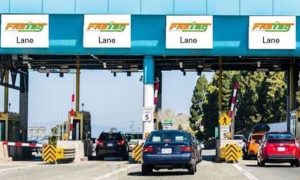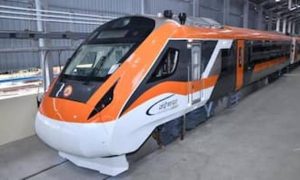Looking to complete the country’s first bullet train project between Mumbai and Ahmedabad by 2026, the National High-Speed Rail Corporation Limited (NHSRCL), which is implementing the project, is seeking indigenous technological solutions to build the infrastructure under the ‘Make-in-India’ vision.
Read More: Delhi excise policy case: K Kavitha’s judicial custody extended till May 20
As the construction of the bullet train project picks up, highly sensitive geotechnical monitoring instruments are being deployed to ensure the safety of civil structures and service utilities at and around the construction sites in Maharashtra for the bullet train corridor.
“Instruments like inclinometers, vibration monitors, ground settlement markers, tilt meters, etc., have been installed at and around construction sites for monitoring tilt, settlement, vibration, cracks, and deformation. These instruments play a crucial role in ensuring that neither there is any risk to ongoing underground works like excavation and tunneling nor to the structures surrounding the site,” according to an official.
The geotechnical instruments are connected to their respective modules to record and monitor the activities. This allows timely identification of potential risks and enables timely interventions to mitigate them. Dust and noise monitors are also being installed at construction sites to ensure that noise and air pollution remain within permissible limits at and around construction sites.
Construction activities are in progress for the 21 km long underground portion of the Bullet Train corridor in Mumbai and Thane districts in Maharashtra.
Read More: Esports Take Center Stage: Zerodha CEO Highlights Potential for Lucrative Career
The works include excavation for about a 1 km long and 32-meter-deep (around 10-story inverted building) underground Bullet Train station at Bandra Kurla Complex and the construction of shafts and portals for tunneling works.
The project has also adopted mechanized track installation machinery. The corridor will have the J-Slab track system based on the Japanese Shinkansen track system. This is the first time the J-slab ballastless track system is being used in India.
“For the 352 km of alignment in Gujarat & DNH (Dadra and Nagar Haveli), 704 km of track is to be laid on viaducts and two bullet train depots at Sabarmati and Surat. The entire process of track installation is mechanized with cutting-edge machinery specially designed and manufactured as per Japanese specifications. Taking the initiative under the Make-in-India (MII) policy, some of the machines are now being manufactured in India also,” adds an official.
Running behind schedule due to delays in land acquisition, Railway Minister Ashwani Vaishnav recently said that the project will be ready by 2026.
Read More: RBL Bank gets RBI’s approval for Quant Money Managers Ltd acquisition
The project has received funding from the Japan International Cooperation Agency (JICA) as a soft loan of Rs 88,000 crore, while the total cost of the project is Rs 1.10 lakh crore. It will cover a 508 km distance between Mumbai and Ahmedabad in around 3.5 hours.





































